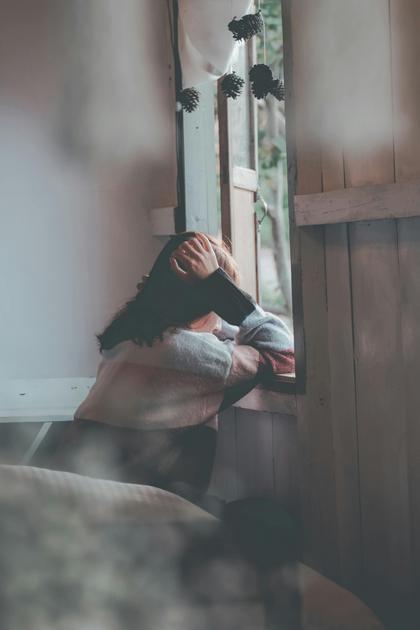It’s common for women over 30 to feel overwhelmed by anxiety triggers. This journey can be filled with hidden challenges, often tied to hormonal changes. Many women experience fatigue, insomnia, and a struggle to find balance in their lives. Understanding the hormonal connection behind these feelings can illuminate a path toward relief. In this article, we’ll explore the subtle yet powerful effects of hormones, hoping to shed light on shared experiences and offering a compassionate perspective.
Understanding Anxiety Triggers in Women Over 30
See today's top solution for balance & energy
Gentle guidance trusted by our community.
Anxiety can creep in quietly, often when we least expect it. For many women over 30, this silent battle isn’t just about stress; it’s about the complexities of life’s demands. With various roles to juggle—such as career, family, and personal aspirations—anxiety often feels like an unwarranted companion. Understanding what triggers this anxiety is the first step towards managing it.
Common triggers can include:
- Work Pressures: Tight deadlines and high expectations can create an overwhelming sense of unease.
- Relationship Struggles: Navigating changes in friendships or intimacy can be emotionally taxing.
- Age-related Concerns: The fear of aging may bring anxiety about health and physical appearance.
- Parenting Challenges: Motherhood is rewarding yet can amplify feelings of anxiety, particularly when concerns about parenting arise.
Recognizing these triggers helps pave the way for healthier coping mechanisms and routines.
The Role of Hormones in Mental Health
Hormones are the body’s messengers, and they play a significant role in mental health. For women in their 30s, hormonal shifts often begin to happen. The fluctuations—especially of estrogen and progesterone—can have profound effects on mood and anxiety levels.
Research shows that:
- Estrogen: Can positively influence mood—when levels are balanced. A drop can lead to irritability and anxiety.
- Progesterone: Often promotes calm, but low levels can contribute to increased anxiety.
- Cortisol: The stress hormone can heighten feelings of anxiety when produced in excess.
Being aware of how these hormones function can empower women to seek adjustments in lifestyle that may alleviate anxiety.
Identifying Common Anxiety Symptoms
Anxiety manifests in many ways, yet not everyone recognizes their symptoms. Understanding these signs can lead to better self-care and coping strategies.
Some common anxiety symptoms include:
- Excessive Worry: Constantly feeling restless or on edge.
- Physical Symptoms: This can range from heart palpitations to digestive issues.
- Sleep Disturbances: Insomnia or difficulty staying asleep can significantly impact daily life.
- Social Withdrawal: Avoiding social interactions due to overwhelming anxiety.
Recognizing these symptoms is the first step in understanding what you might be experiencing and why.
Hormonal Fluctuations: What Every Woman Should Know
As women approach their 30s, hormonal cycles begin to shift. It’s essential to recognize the phases of the menstrual cycle and how they correlate to anxiety levels.
Consider this:
- Follicular Phase: This phase is typically when mood and energy levels are at their peak, thanks to rising estrogen.
- Ovulation: Some women experience increased energy and emotional highs, while others may feel a rise in anxiety.
- Luteal Phase: Post-ovulation, hormonal drops can lead to symptoms like PMS and heightened anxiety.
By tuning into these changes, women can better prepare for potential anxiety triggers that may arise throughout the month.
Connection Between Stress and Hormonal Changes
Stress and hormones are intricately connected, especially for women during their 30s. Life’s pressures can impact hormone balance, which in turn affects mood and mental well-being.
For instance:
- Chronic Stress: Prolonged emotional stress can disrupt cortisol production, leading to feelings of anxiety.
- Hormonal Imbalances: A cycle of hormonal imbalance can cause more stress, creating a difficult loop for women to break free from.
Learning stress management techniques can help stabilize hormone levels, which is crucial for emotional health.
Coping Strategies for Hormone-Related Anxiety
When anxiety strikes, effective coping strategies can be life-changing. Here are some methods that women over 30 may find helpful:
- Regular Exercise: Engaging in physical activity releases endorphins, the body’s natural stress relievers.
- Mindfulness and Meditation: Practicing mindfulness can help ground you during anxious moments, making it easier to cope.
- Nutrition: A balanced diet rich in whole foods supports hormone regulation and overall well-being.
- Sleep Hygiene: Prioritize quality sleep by establishing a bedtime routine that allows you to unwind.
Incorporating these strategies can start to shift the balance back toward a calmer, more peaceful state.
The Importance of Self-Care
Self-care isn’t just a buzzword—it’s a necessity, especially for women navigating anxiety. Making time for yourself can replenish your energy and uplift your spirits.
Self-care can include:
- Setting Boundaries: Learning to say no to obligations that drain your energy.
- Creative Outlets: Engaging in hobbies or activities that bring joy and relaxation.
- Quality Time: Spending meaningful moments with family and friends helps reinforce support networks.
When you prioritize self-care, you’re able to create a buffer against the challenges of everyday life.
Natural Remedies for Hormonal Balancing
In addition to lifestyle changes, many women find comfort in natural remedies to help balance hormones. Some options to consider include:
- Herbal Supplements: Herbs like ashwagandha, chaste tree berry, or evening primrose oil can support hormonal balance.
- Essential Oils: Aromatherapy with oils like lavender or chamomile can promote relaxation and reduce anxiety.
- Acupuncture: This ancient practice may help with hormonal regulation and support emotional wellness.
Always consult with a healthcare provider before starting any new remedies or treatments.
When to Seek Professional Help
Sometimes, despite your best efforts, anxiety may persist. Recognizing when to seek help is important. Consider reaching out to a professional if:
- Anxiety is Persistent: If you find anxiety difficult to manage regularly.
- Impact on Daily Life: When anxiety starts to interfere with work, family, or social activities.
- Physical Symptoms: Experiencing physical symptoms that affect your overall health.
Therapists, counselors, and doctors can provide support tailored to your specific needs and circumstances.
Empowering Solutions: Steps Toward Relief
The journey to managing anxiety is not a straight path, but it is empowering to know you have options. Surrounding yourself with a supportive community and employing healthy coping mechanisms can pave the way to relief.
Remember, anxiety triggers may be linked to hormonal changes, but addressing these root causes is possible. With each small step, you are reclaiming your peace and well-being.
It is entirely possible to improve symptoms and overcome challenges. Many women have walked this transformative path and found their own solutions. You too can take these meaningful steps toward a calmer, balanced life. Explore the simple step-by-step method that has worked for others—because you deserve to feel your best every day.
See today's top solution for balance & energy
Gentle guidance trusted by our community.






